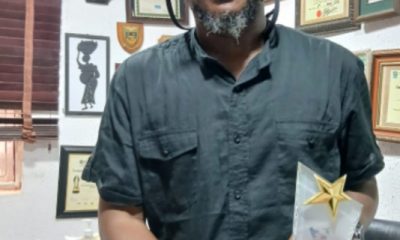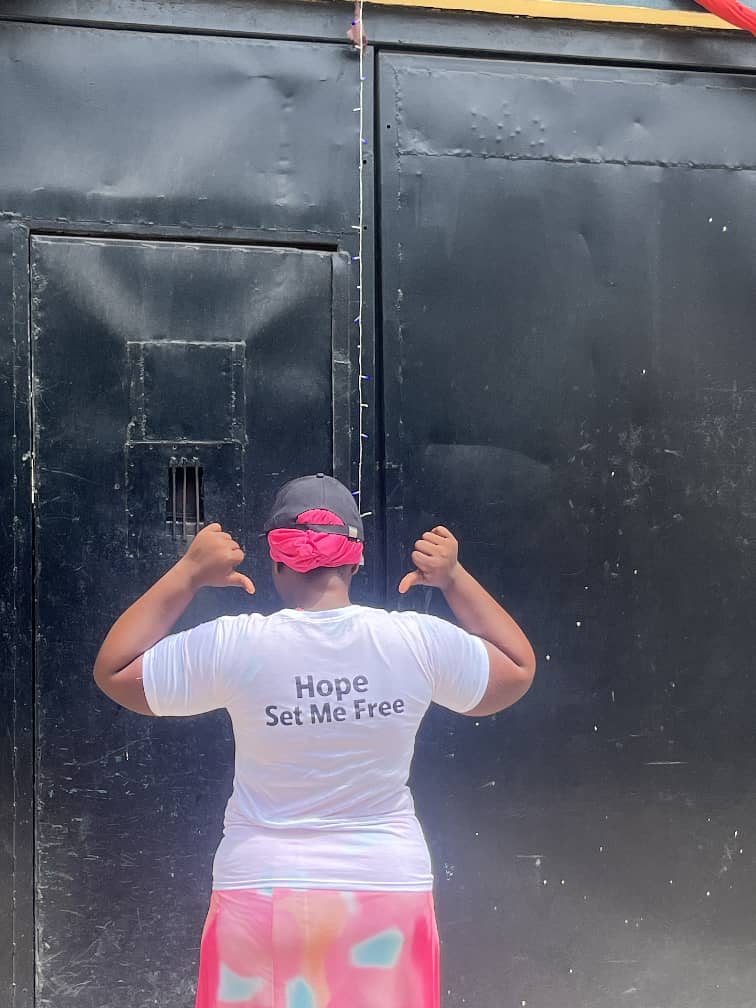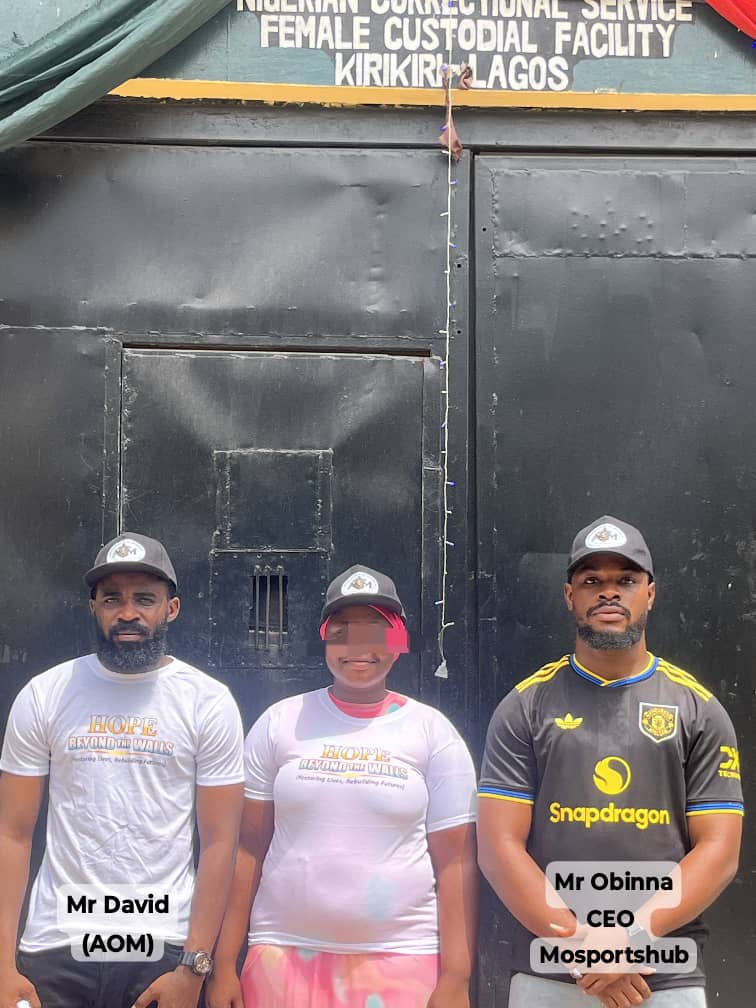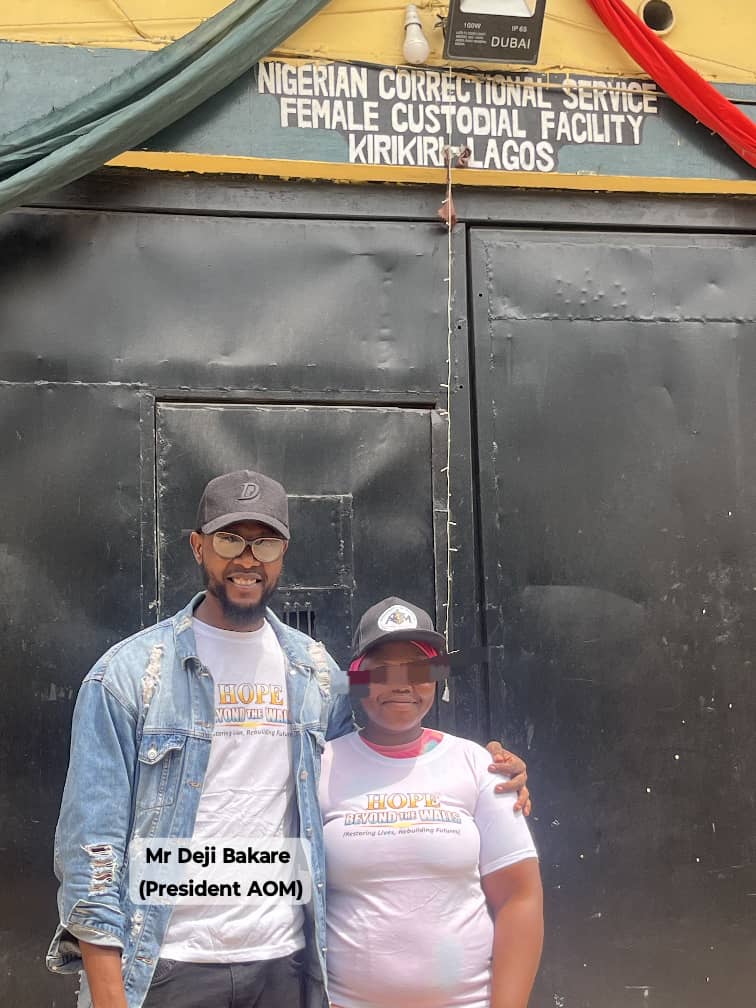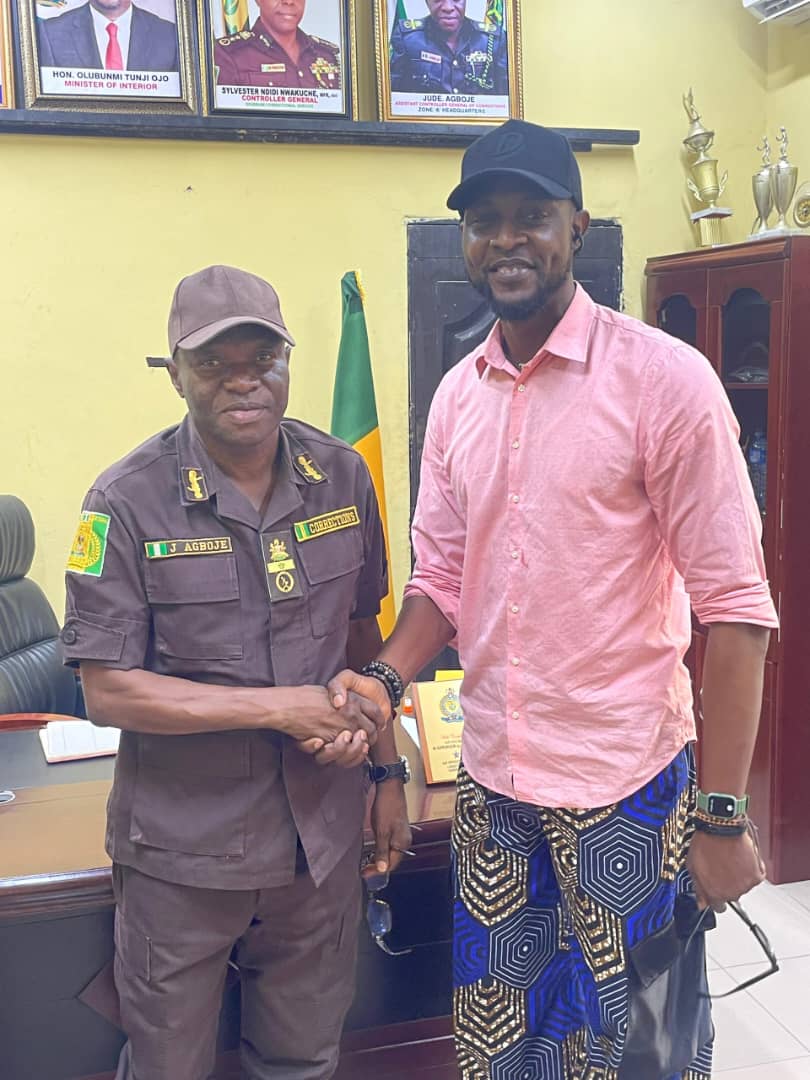society
Faith and Work: The Balance Between Belief and Action in Africa’s Development. By George Omagbemi Sylvester

Faith and Work: The Balance Between Belief and Action in Africa’s Development. By George Omagbemi Sylvester
Africa is a continent rich in culture, natural resources, and faith. Religion plays a central role in the lives of many Africans, with Christianity and Islam being the dominant faiths. The belief in God and the power of prayer is deeply ingrained in society. However, while faith is essential, it must be coupled with practical action to achieve progress. The Holy Scriptures—both the Bible and the Quran—emphasize the importance of work alongside faith. It is through diligence, effort, and action that individuals and communities can truly experience growth and transformation.
Faith Without Work is Dead: The Biblical Perspective
The Bible highlights the necessity of work in tandem with faith. It is not enough to simply pray; action must accompany belief.
James 2:14-17 (NIV)
“What good is it, my brothers and sisters, if someone claims to have faith but has no deeds? Can such faith save them? Suppose a brother or a sister is without clothes and daily food. If one of you says to them, ‘Go in peace; keep warm and well fed,’ but does nothing about their physical needs, what good is it? In the same way, faith by itself, if it is not accompanied by action, is dead.”
This verse directly challenges the notion that prayer alone is sufficient for progress. If one has faith but refuses to act on it by helping others or working toward a goal, that faith is meaningless. Africa’s development must be driven by practical action, innovation, and hard work.
Proverbs 14:23 (NIV)
“All hard work brings a profit, but mere talk leads only to poverty.”
Many communities often spend more time in discussions, prayers, and wishful thinking rather than taking actionable steps to solve their problems. The Bible is clear that talking without effort leads to stagnation, while hard work leads to progress.
Colossians 3:23-24 (NIV)
“Whatever you do, work at it with all your heart, as working for the Lord, not for human masters, since you know that you will receive an inheritance from the Lord as a reward. It is the Lord Christ you are serving.”
This passage emphasizes that work is a divine duty. Hard work is not just for personal gain but is also an act of service to God. Whether in governance, education, business, or agriculture, Africans must commit themselves to excellence and diligence.
The Quran’s Perspective: Faith and Action Go Hand in Hand
The Quran also strongly emphasizes that faith without action is incomplete. Islam teaches that hard work is a form of worship and that success is granted to those who put in the effort while trusting in Allah.
Surah Al-Ra’d (13:11)
“Indeed, Allah will not change the condition of a people until they change what is in themselves.”
This verse highlights personal responsibility. If a nation or community desires change, it must take action. Africa’s progress lies not just in prayer but in active participation in nation-building, economic growth, and social responsibility.
Surah An-Najm (53:39-40)
“And that there is not for man except that [good] for which he strives. And that his effort is going to be seen.”
This passage stresses that success and rewards are tied to effort. Without work, one cannot expect results. Africa must embrace this principle—hard work, perseverance, and initiative will determine its future.
Lessons from China, the USA, and Europe
To understand the balance between faith and work, Africa can learn from China, the United States, and parts of Europe, which have achieved significant development through diligent work ethics, innovation, and proactive governance.
China: Hard Work and Industrialization
China’s rise to global economic power is a testament to the principle that faith in progress must be backed by action. In the 20th century, China transitioned from an agrarian economy to an industrial giant. Key strategies included:
Massive investment in infrastructure and education.
A culture of discipline and hard work.
A government-driven focus on manufacturing and exports.
China’s progress was not solely dependent on prayer or traditional beliefs but on strategic planning and relentless execution.
The USA: Innovation and Entrepreneurial Spirit
The United States is another example of how hard work, innovation, and entrepreneurship drive development. The American Dream is built on the idea that with effort and determination, success is achievable. Factors that contributed to the USA’s progress include:
Emphasis on research and technological advancement.
A free-market economy encouraging entrepreneurship.
A culture that values education and self-improvement.
While faith remains strong in American society, it is complemented by a proactive work ethic and pursuit of excellence.
Europe: Rebuilding After Adversity
After World War II, much of Europe was in ruins. However, through programs like the Marshall Plan, combined with disciplined governance and industrialization, European nations rebuilt their economies. Countries like Germany and the UK focused on:
Strengthening their education and technical training systems.
Encouraging innovation and industry.
Promoting civic responsibility and governance.
The Need for a Cultural Shift in Africa
Many African nations have vast natural resources, fertile lands, and talented populations. However, underdevelopment persists due to over-reliance on prayer without corresponding action. Faith should inspire work, not replace it. Leaders and citizens alike must recognize that:
Education is key – More emphasis should be placed on acquiring skills and knowledge rather than just seeking miracles.
Entrepreneurship should be encouraged – Instead of waiting for government jobs or foreign aid, people should create businesses and opportunities.
Agriculture and industry should be prioritized – Africa must move from being consumers to producers by investing in local industries.
Governance should be proactive – Corruption and laziness among leaders must be replaced with integrity and action.
Technology and innovation must be embraced – African nations must leverage science, engineering, and digital transformation to compete globally.
Women and youth empowerment is essential – The continent must tap into the full potential of all its people by providing equal opportunities.
Faith and Work Are Complementary
Both the Bible and the Quran make it abundantly clear that faith without work is ineffective. While praying is crucial, it must be accompanied by action, planning, and hard work. Africa’s transformation will not come solely from divine intervention but through practical steps taken by its people. To build a prosperous continent, Africans must embrace both spirituality and productivity—trusting in God while working diligently towards their goals.
Ultimately, success is not about faith alone; it is about faith-driven action. Africa’s future will be determined not just by prayers, but by the hands that build, the minds that innovate, and the leaders who take responsibility for change.
society
Viral “Chat With God” Claim Targeting Kenyan Prophet David Owuor Proven False

Viral “Chat With God” Claim Targeting Kenyan Prophet David Owuor Proven False
By George Omagbemi Sylvester, SaharaWeeklyNG
“Viral screenshot sparks national controversy as the Ministry of Repentance and Holiness dismisses fabricated “divine” WhatsApp exchange, raising urgent questions about faith, digital misinformation, and religious accountability in Kenya.”
A sensational social media claim that Kenyan evangelist Prophet Dr. David Owuor displayed a WhatsApp conversation between himself and God has been definitively debunked as misinformation, sparking national debate over digital misinformation, religious authority and faith-based claims in Kenya.
On February 18–19, 2026, an image purporting to show a WhatsApp exchange between a deity and Prophet Owuor circulated widely on Twitter, Facebook, WhatsApp groups and TikTok. The screenshot, allegedly shared during one of his sermons, was interpreted by many as illustrating unprecedented direct communication with the divine delivered through a mainstream messaging platform; a claim that, if true, would have broken new ground in how religious revelation is understood in contemporary society.
However, this narrative quickly unraveled. Owuor’s Ministry of Repentance and Holiness issued an unequivocal public statement calling the image “fabricated, baseless and malicious,” emphasizing that he has never communicated with God through WhatsApp and has not displayed any such digital conversation to congregants. The ministry urged the public and believers to disregard and stop sharing the image.
Independent analysis of the screenshot further undermined its credibility: timestamps in the image were internally inconsistent and the so-called exchange contained chronological impossibilities; clear indicators of digital fabrication rather than an authentic conversation.
This hoax coincides with rising scrutiny of Owuor’s ministry. Earlier in February 2026, national broadcaster TV47 aired an investigative report titled “Divine or Deceptive”, which examined alleged “miracle healing” claims associated with Owuor’s crusades, including assertions of curing HIV and other chronic illnesses. Portions of that investigation suggested some medical documentation linked to followers’ health outcomes were fraudulent or misleading, intensifying debate over the intersection of faith and public health.
Credible faith leaders have weighed in on the broader context. Elias Otieno, chairperson of the National Council of Churches of Kenya (NCCK), recently urged that “no religious leader should replace God or undermine medicine,” affirming a widely accepted Christian understanding that divine healing does not supplant established medical practice. He warned against unverified miracle claims that may endanger lives if believers forego medical treatment.
Renowned communications scholar Professor Pippa Norris has noted that in digital societies, “religious authority is increasingly contested in the public sphere,” and misinformation (intentional or accidental) can quickly erode trust in both religious and secular institutions. Such dynamics underscore the importance of rigorous fact-checking and responsible communication, especially when claims intersect profoundly with personal belief and public well-being.
In sum, the viral WhatsApp chat narrative was not a revelation from the divine but a striking example of how misinformation can exploit reverence for religious figures. Owuor’s swift repudiation of the false claim and broader commentary from established church bodies, underline the ongoing challenge of balancing deeply personal faith experiences with the evidence-based scrutiny necessary in a digitally connected world.
society
HOPE BEYOND THE WALLS 2026: ASSOCIATION OF MODELS SUCCESSFULLY SECURES RELEASE OF AN INMATE, CALLS FOR CONTINUED SUPPORT

HOPE BEYOND THE WALLS 2026: ASSOCIATION OF MODELS SUCCESSFULLY SECURES RELEASE OF AN INMATE, CALLS FOR CONTINUED SUPPORT
The Association of Models (AOMNGO) proudly announces the successful completion of the first edition of Hope Beyond the Walls 2026, a humanitarian initiative dedicated to restoring hope and freedom to deserving inmates.
Despite enormous challenges, financial pressure, emotional strain, and operational stress, the organization remained committed to its mission. Through perseverance, faith, and collective support, one inmate has successfully regained freedom a powerful reminder that hope is stronger than circumstance.
This milestone did not come easily.
Behind the scenes were weeks of coordination, advocacy, fundraising, documentation, and intense engagement. There were moments of uncertainty, but the determination to give someone a second chance kept the vision alive.
Today, the Association of Models gives heartfelt appreciation to all partners and sponsors, both locally and internationally, who stood with us mentally, financially, morally, and physically.
Special Recognition and Appreciation To:
Correctional Service Zonal Headquarters Zone A Ikoyi
Esan Dele
Ololade Bakare
Ify
Kweme
Taiwo & Kehinde Solagbade
Segun
Mr David Olayiwola
Mr David Alabi
PPF Zion International
OlasGlam International
Razor
Mr Obinna
Mr Dele Bakare (VOB International)
Tawio Bakare
Kehinde Bakare
Hannah Bakare
Mrs Doyin Adeyemi
Shade Daniel
Mr Seyi United States
Toxan Global Enterprises Prison
Adeleke Otejo
Favour
Yetty Mama
Loko Tobi Jeannette
MOSES OLUWATOSIN OKIKIADE
Moses Okikiade
(Provenience Enterprise)
We also acknowledge the numerous businesses and private supporters whose names may not be individually mentioned but whose contributions were instrumental in achieving this success.
Your generosity made freedom possible.
A CALL TO ACTION
Hope Beyond the Walls is not a one-time event. It is a movement.
There are still many deserving inmates waiting for a second chance individuals who simply need financial assistance, legal support, and advocacy to reunite with their families and rebuild their lives.
The Association of Models is therefore calling on:
Corporate organizations
Local and international sponsors
Philanthropists
Faith-based organizations
Community leaders
Individuals with a heart for impact
to partner with us.
Our vision is clear:
To secure the release of inmates regularly monthly, quarterly, or during special intervention periods through structured support and transparent collaboration.
HOW TO SUPPORT
Interested partners and supporters can reach out via
Social Media: Official Handles Hope In Motion
Donations and sponsorship inquiries are welcome.
Together, we can turn difficult stories into testimonies of restoration.
ABOUT AOMNGO
The Association of Models (AOMNGO) is a humanitarian driven organization committed to advocacy, empowerment, and social impact. Through projects like Hope Beyond the Walls, the organization works tirelessly to restore dignity and create opportunities for individuals seeking a second chance.
“When we come together, walls fall and hope rises.”
For media interviews, partnerships, and sponsorship discussions, please contact the Association of Models directly.
society
SENATOR ADEOLA YAYI REGISTERS 4000 JAMB CANDIDATES
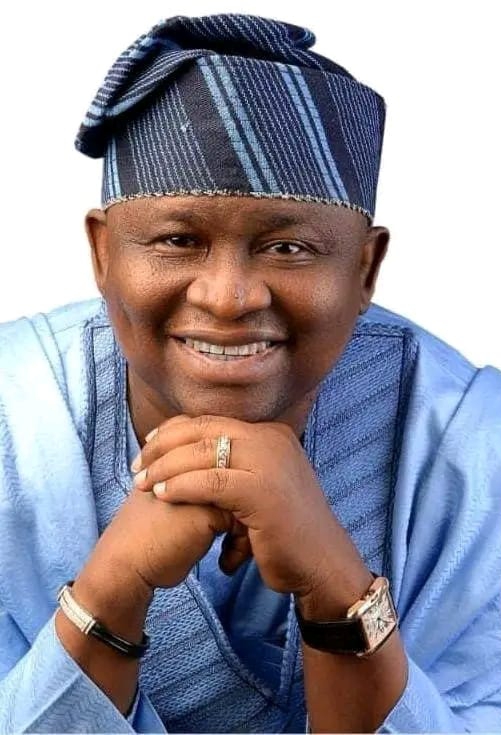
SENATOR ADEOLA YAYI REGISTERS 4000 JAMB CANDIDATES
In continuation of his educational support initiatives and following established tradition, Senator Solomon Adeola (APC,Ogun West) has successfully paid for and enrolled 4000 indigent students for the 2026 Joint Admission Matriculation Board(JAMB) examination.
According to a release e-signed and made available to members of the League of Yewa-Awori Media Practitioners (LOYAMP) by High Chief Kayode Odunaro, Media Adviser to Senator Adeola and shared with (your mediu), the programme financed by the senator under the “SEN YAYI FREE JAMB 2026” ended on Saturday , February 21, 2026, with a total of 4000 candidates successfully enrolled with their PINs provided.
Commenting on the success of the programme, Senator Adeola said the programme is another leg of his personal educational empowerment for indigent but brilliant citizens preparatory to his scholarship and bursary facilitation for tertiary education institutions’ students.
“As far as I can help it, none of our children will miss educational opportunities arising out of adverse economic predicament of their parents or guardians”, he stated.
Successful candidates cut across all the three senatorial districts of Ogun State with 2183 coming from Ogun West, 1358 coming from Ogun Central and 418 from Ogun East.
Some of the candidates that applied and are yet to get their PINs due wrong information supplied in their profiles and being underage as discovered by JAMB and other reasons are being further assisted to see the possibility of getting their PINs.
The Free JAMB programme of the Senator that has been running for years is well received by appreciative beneficiaries and their parents.
Alhaji Suara Adeyemi from Ipokia Local Government whose daughter successfully got her PIN in the programme said the Senator’s gesture was a welcome financial relief for his family at this period after payment of numerous school fees of other siblings of the beneficiary seeking admission to higher institution.
Also posting on the social media handle of the Senator, a beneficiary Mr. Henry Olaitan, from Odeda LGA said that he would have missed doing the entry examination as his guardian cannot afford the fees for himself and two of his children.
-

 celebrity radar - gossips6 months ago
celebrity radar - gossips6 months agoWhy Babangida’s Hilltop Home Became Nigeria’s Political “Mecca”
-

 society6 months ago
society6 months agoPower is a Loan, Not a Possession: The Sacred Duty of Planting People
-

 society5 months ago
society5 months agoReligion: Africa’s Oldest Weapon of Enslavement and the Forgotten Truth
-

 news6 months ago
news6 months agoTHE APPOINTMENT OF WASIU AYINDE BY THE FEDERAL GOVERNMENT AS AN AMBASSADOR SOUNDS EMBARRASSING






